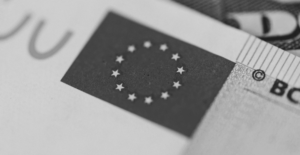Protecting your brand can be an uphill battle. Every day, businesses face rising threats from counterfeits, fake shops, domain impersonations, and phishing attacks. As artificial intelligence continues to advance, scammers exploit its capabilities to generate convincing copy for their fake pages, produce realistic fake images, and spin up new fake shops in no time. But the brand protection challenges don’t stop with the scammers.

The brand protection industry itself sometimes falls short, failing to keep up with client needs and making it tough for brands to defend themselves. Here, we’ll explore five major problems within the industry, and how to fix them.
1. Falling being the times with brand protection technology
Scammers evolve rapidly, using AI to streamline phishing attacks, domain impersonations, and counterfeit production. Unfortunately, many brand protection companies fail to keep up. Slow-moving providers often neglect emerging AI tools that streamline workflows and enhance threat intelligence. Modern brand protection AI automates threat detection and deliver better insights for consumers, making anti-scam action easier for brands and providers alike. If scammers already use AI, why don’t brand protection companies do the same?
To stay ahead, companies need to invest in AI-driven technology that not only automates threat detection but also provides actionable intelligence to stay one step ahead of attackers.
2. Lost in translation: The account manager merry-go-round
Changing account managers presents a constant frustration for many businesses, in brand protection and beyond. Too often, brand protection companies rotate their project team members, forcing you to explain your situation over and over again. Instead of identifying and taking down scammers, teams waste time with onboarding team members. This constant turnover delays the action your brand needs, leaving you vulnerable to scams as infringements multiply.
The solution? Stable, dedicated teams that understand your brand from day one and focus on fighting threats—not relearning your history.
3. Tunnel vision: Narrow brand protection
Brand protection presents a complex field, requiring attention across multiple evolving channels. Unfortunately, many players in the industry focus on a single area, such as anti-phishing, anti-counterfeiting, or domain protection. This narrow focus creates silos and blind spots, and attacks and infringements slip through, striking brands with their gaurds‘ down. When companies don’t offer comprehensive solutions, they leave your brand exposed the threats they don’t specialize in.

Brands need holistic protection that covers every aspect of their online presence. A comprehensive approach ensures nothing falls through the gaps, from counterfeits to phishing and beyond.
4. Local mindsets
Many brand protection companies struggle to offer global coverage. With only one office or a narrow focus on a specific region, they face difficulties handling issues that cross borders. However, scams, infringements, and other brand protection issues present a global challenge that only an international scope can account for. Whether it’s dealing with trade embargos, translation challenges, or engaging local authorities, scams operate on a global scale, and so should your protection. A brand protection provider with limited geographical reach simply can’t keep up with international scammers.
To fully protect your brand, you need global coverage—companies with teams on the ground, who understand local regulations and have the connections to respond quickly.
5. Troublesome takedowns
Businesses buy brand protection solutions to get rid of threats and infringements. This goal seems straightforward, but often, brands run into obstacles and setbacks that make takedowns drag, while other infringements bloom and multiply online. Brands need a fast, successful takedown rate, and when providers fail to deliver, frustrations arise.
When brands find a malicious domain, for example, they may suffer issues getting hold of the registrar, or completing the right forms and procedures needed to request the takedown. Even then, the wheels of justice turn slowly, with staff in and out of office, and various authorities struggling to process their requests. The task takes even longer when brand protection providers change their project team members, and companies have to keep their new account managers up to date.

When it comes to resolving these kinds of issues, effective brand protection blends experience with consistency. The best brand protection platforms establish strong, active relationships with registrars, marketplaces, and authorities around the world, delivering smooth and productive takedowns. Creating a stable team of informed experts also lays the foundation for takedown teams to hit the ground running. Find out more about the trouble with takedowns, and how effective teams solve them, in our dedicated guide.
Conclusion: Solving brand protection
Effective brand protection requires a long-term approach, built on experience, collaboration, and careful planning. It’s about more than just reacting to threats—it’s about anticipating them and making informed decisions.
Ultimately, the right approach makes all the difference. At EBRAND, we offer a close-knit team that sticks with you, fluent in your language and understanding your needs. Our comprehensive solutions cover every threat, from counterfeiting to phishing, and our innovative product teams ensure you’re always a step ahead. With global coverage and decades of experience, we craft a collaborative strategy that keeps your brand safe, no matter where the threats come from.
Ready to take control of your online presence? Get a free audit today, and let’s start the conversation.


